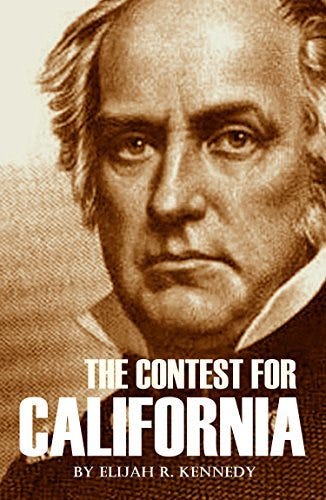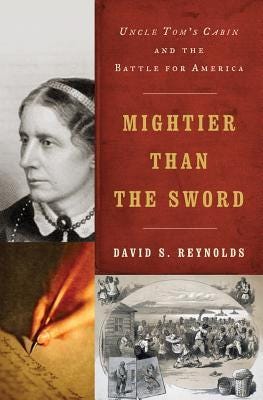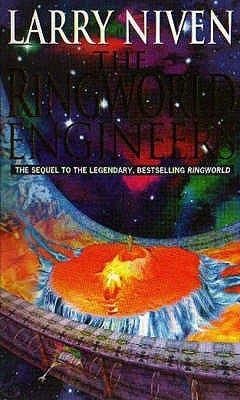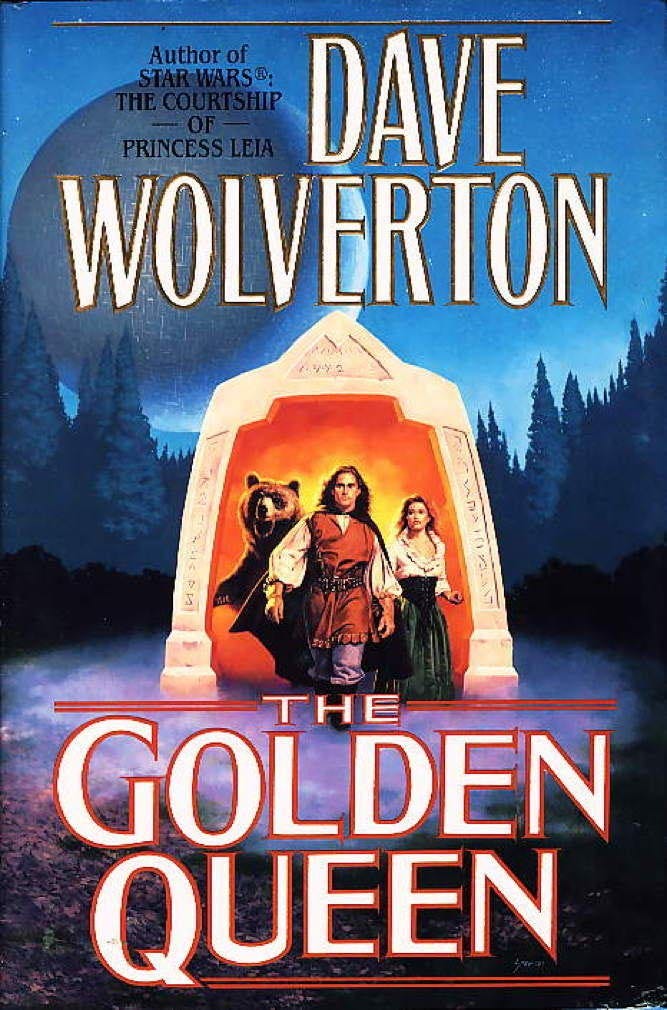Short Reviews for June 2025
Contest for California, Mightier Than the Sword, Ringworld Engineers, Golden Queen
The Contest for California in 1861: How Colonel E. D. Baker Saved the Pacific States to the Union, by Elijah R. Kennedy (402 pp; 1912)
Who should read this? People who want a laudatory biography of a Unionist politician, and that perspective on California in 1860.
This laudatory biography from 1912 praises Senator Edward Baker of Oregon (originally from Illinois, then living in California before moving to Oregon just in time to be chosen) for preventing the Pacific coast from seceding in 1861. When you look closer, however, the specific things Kennedy actually says Baker did are fairly scanty. There certainly were secessionists on the Pacific coast, and (Kennedy portrays) many of them in high places - yet in the end, their plans all came to naught. How? Kennedy, beneath his rhetoric, isn't clear.
He heaps praise on Baker for this. Surely, Baker's 1860 election as Senator from Oregon showed Republican power, and it could've so discomfited the secessionists that it gave the Republicans further power... but Kennedy doesn't make the case so much as assert it. Surely, Baker's subsequent friendship with Lincoln could've helped... yet when you look closely, the dates Kennedy himself cites make that much less likely. Baker was no doubt a friend of the Union, and a brave man given how he volunteered for the Army and died in battle at Ball’s Bluff, but this biography doesn't show him as interesting.
All in all, the most interesting part of this book to me was the early chapters' description of rough-and-tumble society in California. Totally separate from Baker, I'm fascinated and somewhat disturbed to read about the hard-drinking, hard-fighting life of miners always searching for a big strike and usually-vain hopes of riches.
Mightier than the Sword: Uncle Tom's Cabin and the Battle for America, by David Reynolds (368 pp; 2011)
Who should read this? People who've read Uncle Tom's Cabin, and are looking for a historical-literary analysis of its reception.
This's a book about Stowe's influences for writing Uncle Tom's Cabin, and America's reception of it - mainly at the time, but also later on as plays based on it became among the most popular form of theater in America.
It's been ages since I read Uncle Tom's Cabin, but I still remember it as a very powerful book. According to Reynolds, the playwrights did usually keep the central message: black people can be sympathetic, even heroic, characters. And that was a great strike in the "battle for America" of the title: the Civil War, and then race relations in general.
What I hoped for but didn't really get was an analysis of how "Uncle Tom" came to be an insult. Reynolds mentions that but doesn't really explain how that became the popular interpretation. One thing he does point out is that some trends in that direction started very early - when Frederick Douglass was addressing a regiment of the US Colored Troops, he said approvingly that they weren't going to be "Uncle Toms." Of course, that's very proper for a literal military regiment... but given what the term’s eventual connotations, I can't but see this as a prefiguring.
The oldest quote in Wiktionary dates the modern meaning at least back to the 1960's, which lines up with how Reynolds says the popularity of Uncle Tom's Cabin significantly declined then as the popular mindset started to see it as outdated.
The Ringworld Engineers, by Larry Niven (354 pp; 1979)
Who should read this? Fans of classic science fiction, including those who like it heavy on the science.
This's the second Ringworld book, a sequel written at the demand of Niven's fans. When I read the first book several years ago, I thought that it'd only touched on one tiny part of the immense Ringworld (a ring of ~1 AU radius!), and I wanted to see more of its backstory. Apparently most contemporary fans agreed with me, because that's what Niven gives us here!
Here, we explore different parts of the impossibly-vast Ringworld, and we explore its origins and technological nature. Niven beautifully incorporates the flaws in his first book. The explanation from Book One for the collapse of the Ringworld builders' civilization doesn't really work? Well, turns out our informant was lying! Fans worked out the Ringworld wouldn't be stable in its orbit? Well, turns out there were thrusters originally... but there aren't anymore, and that's a problem! Which our heroes must solve!
It's a really good premise, a good plot, and better characterization than the first novel. The once-two-dimensional Louis Wu, especially, has grown new dimensions of character since Book One; I love his beautiful exercise of willpower in the ending here. Speaking of the ending... aside from that, it's not an ending that satisfies me personally, but one that works. What's more, it fails to satisfy me in ways I should've expected from Niven - for had he not given an ending to another novel failing in the exact same way, and waved the tierods from there in front of us here?
The Golden Queen, by Dave Wolverton (318 pp; 1994)
Who should read this? Fans of pulp sci-fi and fantasy.
Our protagonists, from a medievalesque colony planet, get caught up in a worlds-spanning war against the bug aliens when the lost princess of the human civilization comes through their world.
The worlds here are connected by worldgates people walk through on foot; spaceships are barely mentioned. Everything is explained with scientific technobabble, but it very much feels like fantasy. When our protagonists (with a medievalesque background) initially think of it as magic, I'm nodding right along with them.
The setting and characters are sketched in broad strokes - nothing spectacular, but decently done. The character development is less artful, though - a couple characters do change over the course of the book, but I wish it'd been shown better.
Even more, I wish it'd been better shown why the bugs are willing to surrender to anyone - even a human - who survives their ritual claiming of Queenship. They've been shown as having strong biological drives toward hierarchy, but could they really be redirected to a human that easily? I do like the twist we're shown when it happens onscreen, but I'm still left scratching my head about its plausibility.
This's a flawed book, but a fun enough one. I'm still glad I read it, but I wish it'd been done better.








I'd recommend John Myers Myers 'San Francisco's Reign of Terror'- gun-slinging politician chased out of San Francisco by evil slave-trading Vigilantes book. It's not as good as 'Silverlock', by same, because nothing is, but it's good history. Like every real history of a real gun slinger, the hero loses his pistols carelessly, doesn't care, doesn't know guns or shoot well, doesn't care, still ends up backing Luke Short (I think) against odds later. He did bring a field piece to the voting place in a San Francisco election, which should count for something.
I'd recommend 'A Key to Uncle Tom's Cabin' where she goes into detail defending herself against claims she just made up UTC. But I haven't finished it. I think I ran across the title as a book someone was reading in an Edwardian country house story.
I loved Ringworld Engineers in Galileo Magazine when it was serialized, but even then I could see Louis Wu shifting from 'rich madly smart tourist in trouble in fairyland' which Niven does better than anyone on Earth before or since, to 'Pulp Hero master of martial arts makes tough decisions lesser studs could never-' which others have done. Still a great book. Born a Dougherty heir in the 1930s, Cal Tech math major who read too much SF and dropped out and got stuffed in Meningers, Niven just rules at rich madly smart tourists in trouble in fairyland.
"What's more, it fails to satisfy me in ways I should've expected from Niven - for had he not given an ending to another novel failing in the exact same way, and waved the tierods from there in front of us here?"
I respect your desire not to give spoilers (if that's what's going on here) but as someone who's read a lot of Niven, including Engineers, I confess that this is a little too allusive for me to grasp. Can you elaborate ever so slightly? Or should I scan your archives to find what you're referring to?